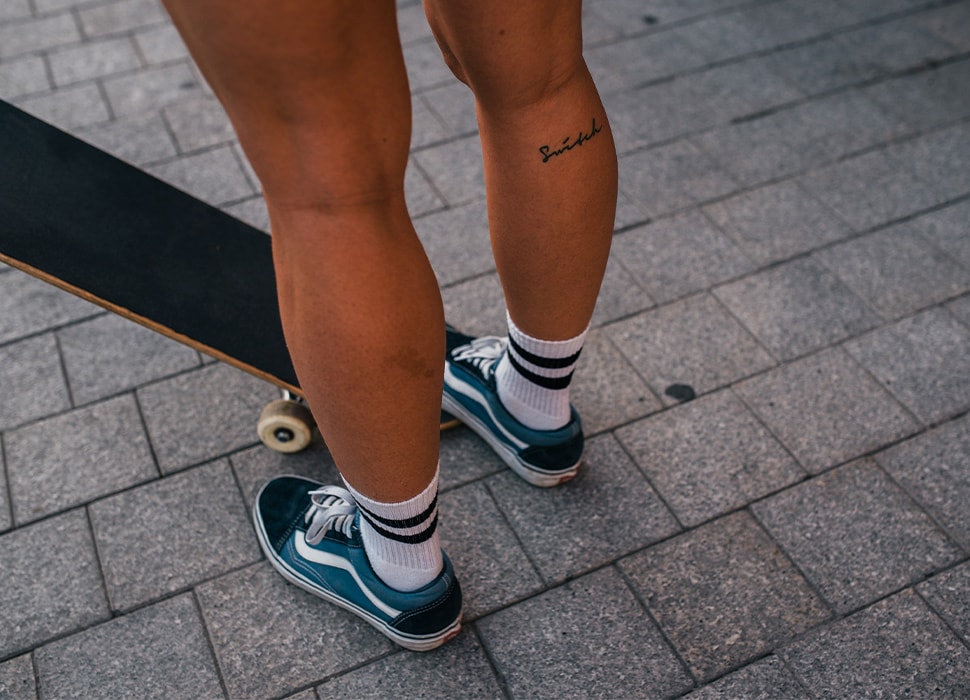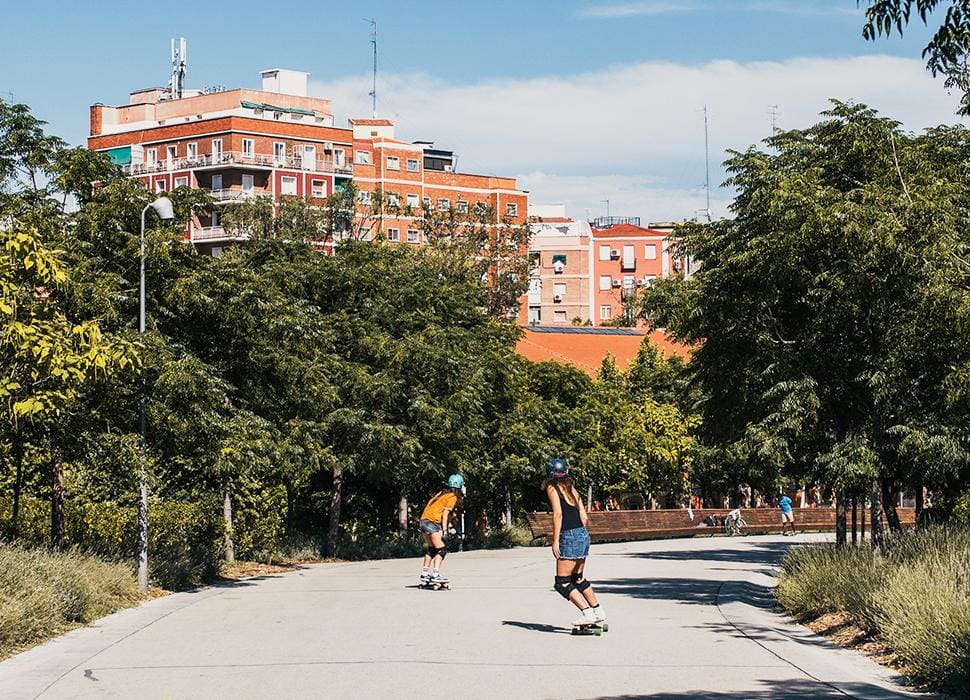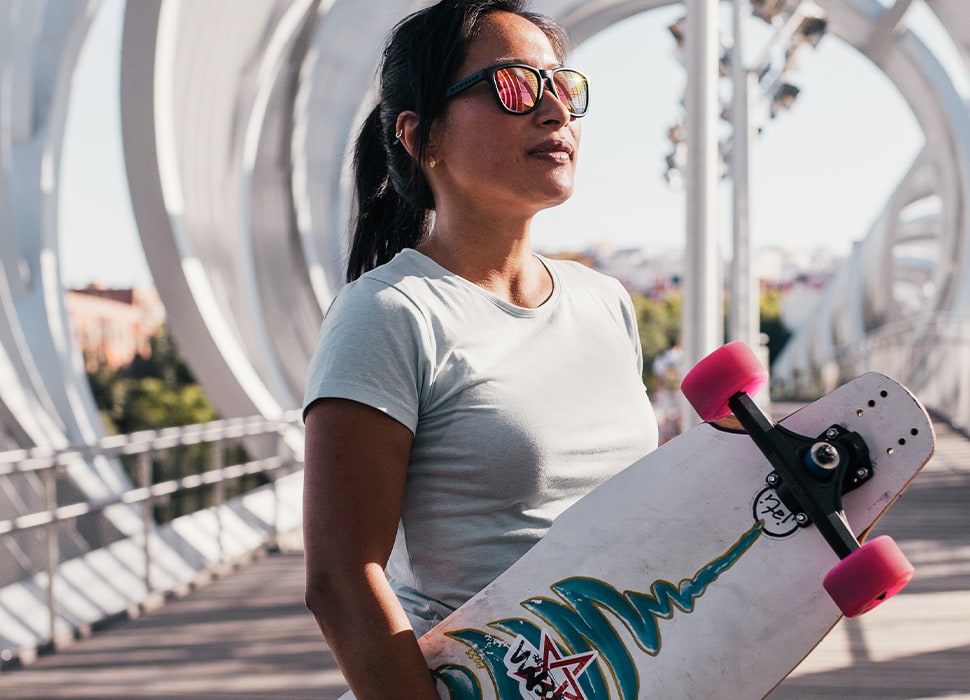As she wheels through hazy late-afternoon heat in Madrid’s meandering Río Park, Valeria Kechichian aims a broad, companionable smile at a passing girl on a plastic skateboard.
“Did you see?” says Kechichian, turning to the rest of the group after this stranger passes. “She had skater’s knees. She was totally bleeding.” If anyone is able to diagnose this specific and somewhat grisly ailment then it’s this 40-year-old Argentinian longboarder and action-sports revolutionary.
In just ten years, Kechichian has turned Longboard Girls Crew – which she co-founded as a loose collective of women cruising the streets of the Spanish capital – into a bona fide global phenomenon. With sub-groups in more than 80 countries, LGC has deployed slickly edited viral videos (its biggest YouTube hits have millions of views each), along with continent-hopping meet-ups and a healthy dollop of fearless female attitude to upend skateboarding’s male-dominated status quo. They’ve been featured on ESPN and BBC News and, in 2015, Kechichian – a supernova of multilingual charisma, covered in discreet, finely drawn tattoos – even delivered a TEDx talk about her four-wheeled fight against sexism.
Valeria Kechichian takes a hill
“I remember a couple of years ago, some of the most popular comments on our videos were, ‘Can she make a sandwich?’ and messed-up stuff like that, but I chose not to focus on it,” she says. “I realised that for some men it’s OK if we do stuff like this, until we’re more successful at it than them.”
How exactly did they do it? I’ve come here to the crew’s birthplace to find out, joining Kechichian and LGC members Ishtar Bäcklund and Possala Wang as they pull on sticker-covered helmets, make for a daunting slope of tarmac and show me what ripping up the gender rulebook really looks like.
“Woah, it’s soooo buttery,” grins Kechichian as she bombs down the hill and slips into a graceful skid-turn. Bäcklund, a design student and occasional downhill racer based in Stockholm, follows with focused speed and the odd squeal (“I’m scared if I bend over I’m going to reveal too much,” she says, frowning at her tiny shorts).
Bäcklund and Kechichian pad up
Then there’s Wang, a diminutive American Madrileño who hurls herself into a series of kamikaze hand slides that nearly take out our photographer and – at one point – lands her in the neighbouring bushes. “I don’t stop for much,” she says, heading back up the hill for another run (including people holding cameras, shrubbery and, presumably, patriarchal institutions).
This freewheeling international movement is all the more impressive when you consider it began as a way for Kechichian to escape her personal demons. “At 28, I was looking for positive stuff to replace the negative in my life,” she explains, once she’s taken off her pads and reinforced gloves at the nearby Matadero arts centre where we’ve stopped in for a chat. “When I arrived in Spain at 20, I struggled with drugs and alcohol. I wanted to break the self-destructive loop with something else that excited me.” Of all the hobbies she tried – including learning to play the drums – skateboarding was the one that changed her life and it was an accidental session with other women riders that sparked her lightbulb moment.





